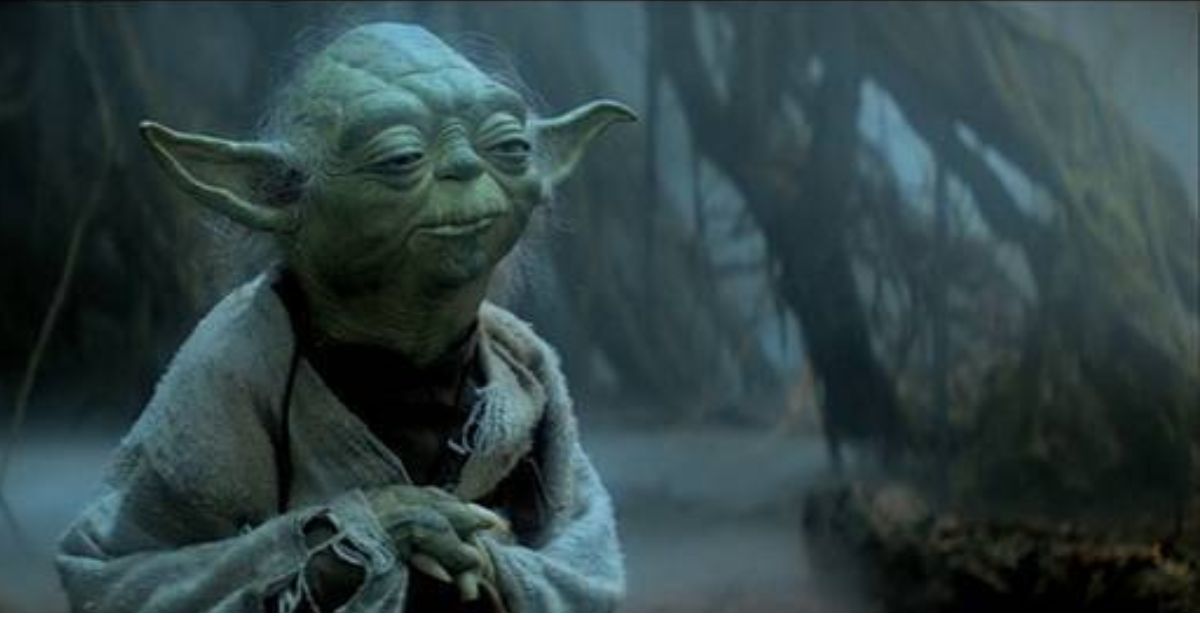Have you ever stopped and wondered why Palpatine just let Yoda go after Revenge of the Sith? I mean, the guy wiped out pretty much the entire Jedi Order, and yet he didn’t even bother sending out a galaxy-wide manhunt for the Grand Master himself. It’s one of those Star Wars details that always made me do a double-take.
Why would the most ruthless Sith Lord ever decide it’s fine to leave Yoda alive and chilling in exile? Turns out, there are some pretty solid reasons, and a few deep-cut lore bits that explain exactly why Palpatine never bothered to hunt him down.
Palpatine Let Yoda Live, So He’d Suffer Watching the Sith Rule
The first thing to remember is that Palpatine definitely knew Yoda survived their duel in Revenge of the Sith; that’s why right after their fight, you see Sidious ordering the clones to go hunt for him. But after that? Palpatine straight-up loses interest. He understood that Yoda (or any surviving Jedi, really) just didn’t matter to his new Empire anymore. From his perspective, the Jedi Order was dead, the Sith had won, and it didn’t make sense to waste resources chasing a few stragglers.
This isn’t just headcanon either, it’s spelled out in Star Wars: Dark Lord: The Rise of Darth Vader (a Legends novel set right after Order 66). In the book, Vader’s still burning with hate for the Jedi and wants to track down every last survivor, but Palpatine stops him. He basically tells Vader the Jedi are finished, their Order is crushed, and there’s no need to obsess over hunting them all down. Here’s how the exchange goes:
“So my young apprentice, two Jedi slip through your grasp and you scatter the blame like leaves blown about by a storm.”
Vader replies, “Master, if you had been there—”
Palpatine cuts him off: “Keep still, before you damage yourself all the more. First, let me reiterate that the Jedi mean nothing to us. In having survived, Yoda and Obi-Wan aren’t exceptions to the rule. I’m certain that dozens of Jedi escaped with their lives, and in due time, you will have the pleasure of killing many of them. But of greater import is the fact that their Order has been crushed. Finished, Lord Vader. Do I make myself clear?”

He even goes further, telling Vader: “In burying their heads in the sands and snows of remote worlds, the surviving Jedi humble themselves before the Sith. So let them: let them atone for one thousand years of arrogance and self-absorption.”

From the exchange between Vader and his Sith master above, we understand Palpatine’s calculated strategy: let Yoda and the other survivors live out their days in exile, powerless to stop the Empire and forced to watch everything they fought for crumble. Rather than simply hunting them down, he transformed their survival into an ongoing punishment. Yoda, once the revered leader of the Jedi Order, now had to hide on a remote swamp planet like Dagobah, completely severed from allies, the galaxy, and any hope of rebuilding what had been destroyed.
Every day was a reminder that the Sith now ruled the galaxy and that the Jedi legacy was erased. In Palpatine’s eyes, that was a fate worse than death, forcing the greatest Jedi to bear witness to the Sith’s triumph, unable to interfere or even be remembered by the galaxy he once served. That’s not just Sith pettiness, that’s psychological warfare at its finest.
Palpatine’s Reaction to Yoda’s Death
From that point on, it’s pretty clear Palpatine could’ve hunted down any remaining Jedi if he really wanted to—after all, he created the Inquisitors and set them loose across the galaxy to track down survivors. But notice that, despite all that effort, we never see the Inquisitors actually sent after Yoda. It’s almost like Sidious was content to let Yoda rot in obscurity, knowing the Grand Master was no longer a threat to his Empire.
What’s even cooler is what we get in the Star Wars: Return of the Jedi novelization by James Kahn. During the final battle on the second Death Star, there’s a scene where Palpatine actually senses Yoda’s death through Luke’s emotions. The Emperor is pushing every psychological button he can find, trying to break Luke and lure him to the dark side—and when he brings up Yoda, you see just how deep he’s digging. Here’s how it goes in the book:
“There was one called… Yoda, an aged Master Jedi… Ah, I see by your countenance I have hit a chord, a resonant chord indeed. Yoda, then.”
Sidious keeps prodding:
“This, Yoda, lives he still? He lives not. Very good, young Skywalker, you almost hid this from me. But you could not. And you can not. Your deepest flickerings are to me apparent. Your nakedest soul. That is my first lesson to you.”
And the novel describes Palpatine’s reaction in chilling detail:
“He saw the Emperor actually lick his lips at the sight of Luke’s reaction. Lick his lips and laugh from the bottom of his throat, the bottom of his soul.”
It’s such a perfect glimpse into how much satisfaction Palpatine took in the death of his greatest rival. Not only did it confirm that the old Jedi Order was truly gone, but it also gave Sidious one last victory over Yoda, using his death to break Luke’s spirit right at the tipping point.

